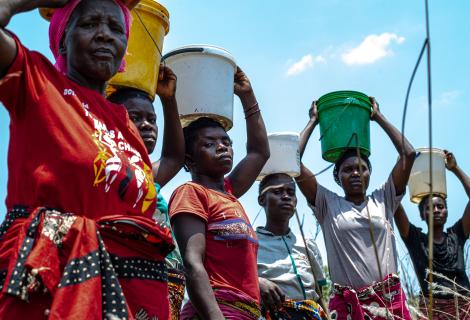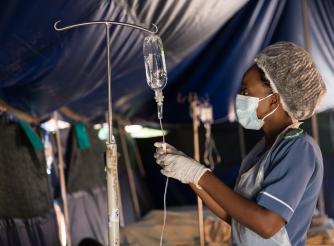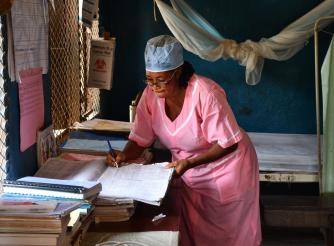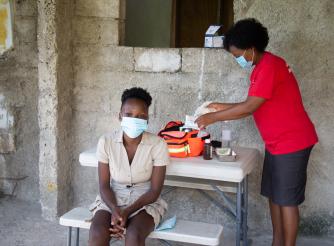Reactions to the IMF programme in Zambia

ActionAid Zambia’s Country Director, Nalucha Nganga Ziba, has provided the following statement in response to the recently revealed new IMF programme in the country:
"This programme is based on the traditional IMF austerity package – but delivered on steroids. In just 38 months Zambia is being pushed to move from a 6% deficit to a 3.2% surplus – and this is to be achieved by significant cuts in some crucial areas of spending and some increases in taxes that pass the burden onto the poor majority rather than onto the richest individuals and companies.
"Earlier this year the government of President Hichilema made bold commitments to make education free from early childhood through to upper secondary and it has recruited 30,000 new teachers to address serious shortages. But with the squeeze now placed on public sector pay and school enrolments likely to rise dramatically at every level of education, class sizes will rise everywhere, and come 2025 the shortage of teachers will be more acute than ever.
"There are serious concerns about the abrupt removal of fuel and electricity subsidies, leaving Zambian citizens completely exposed to the wild volatility of fuel prices on the international market following the Ukraine war. It is important over time to phase out taxpayer support to the fossil fuel industry but there is still a case for supporting renewable solutions. Whilst many other countries are exploring the introduction of price controls and subsidies in response to the present fuel price surges, Zambia will be forced in the opposite direction.
"One of the Zambian success stories in recent years has been the Farmer Input Support Programme that has helped the country become more food secure, in particular with maize. This programme will face significant cuts under the IMF programme and where these cuts fall will be crucial. There is a case for ending subsidies to large scale industrial farmers, but support for smallholder farmers, especially for climate-friendly agroecological farming needs to be protected and extended.
"One of the commitments in the IMF programme is to a new Public Private Partnership act. There is certainly a need to improve the present PPP practices, but it is important to ensure that any reforms draw learning from the well documented challenges and failures of PPPs internationally.
"In summary, this IMF programme fails to pass the burden onto those who are most able to pay. It does not have an equity lens, least of all a gender equity lens. It is too late to change the core of the agreement now, but we hope that we can work with others in civil society to make the case for progressive and equitable solutions to be found within the coming three years. We will track the impact of this programme and expose the injustices that arise, arguing for alternative paths to be followed that shift the burdens on to those actors who are most able to pay. The next time such an agreement is negotiated we must demand full transparency from the government in every moment of the process - and we must push back against the cult of austerity that the IMF continues to champion."


